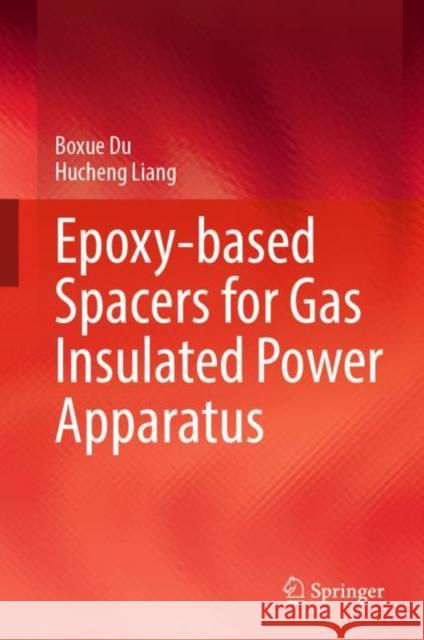Epoxy-Based Spacers for Gas Insulated Power Apparatus » książka
Epoxy-Based Spacers for Gas Insulated Power Apparatus
ISBN-13: 9789811971105 / Angielski / Twarda / 2022 / 497 str.
Epoxy-Based Spacers for Gas Insulated Power Apparatus
ISBN-13: 9789811971105 / Angielski / Twarda / 2022 / 497 str.
(netto: 613,40 VAT: 5%)
Najniższa cena z 30 dni: 616,85
ok. 16-18 dni roboczych.
Darmowa dostawa!
This book offers an insight into the insulation failures in GIS/GIL and provides practical guidance for improving the insulation reliability of epoxy-based spacers. High voltage gas-insulated apparatuses, including gas-insulated switchgears (GIS) and transmission lines (GIL), playing an important role in the global power transmission system. Epoxy-based spacers are key components in GIS/GIL, playing the role of electrical insulation and mechanical support. However, insulation failures frequently occur around the epoxy-based spacers, threatening the safe operation of the electric power system. Three topics make up this book, with seven to nine chapters in each topic. In the first topic, the surface charging and discharging behaviors of epoxy-based spacers are discussed to deepen the readers’ understanding on the insulation problems in GIS/GIL. And the insulation breakdown of epoxy-based spacers is found to be closely related to the electric field distortion under complex operating conditions. In the second topic, original researches on the surface functionally graded materials (SFGM) are presented for relaxing the electric field distortion around the epoxy-based spacers in both AC and DC GIS/GIL, and a series of optimization methods and fabrication techniques for the SFGM spacers are introduced and discussed. In the last topic, the nonlinear conductivity materials (NCM), also known as self-adaptive materials or intelligent materials, are applied as coatings to adaptively regulate the electric field distributions along the surfaces of the epoxy-based spacers. Besides, the concept of the multi-dimensional functionally graded materials (MFGM) is proposed to uniform the electric field distributions in DC GIS/GIL under stationary and transient voltages, exhibiting great potential in the future application.
This book offers an insight into the insulation failures in GIS/GIL and provides practical guidance for improving the insulation reliability of epoxy-based spacers. High voltage gas-insulated apparatuses, including gas-insulated switchgears (GIS) and transmission lines (GIL), playing an important role in the global power transmission system. Epoxy-based spacers are key components in GIS/GIL, playing the role of electrical insulation and mechanical support. However, insulation failures frequently occur around the epoxy-based spacers, threatening the safe operation of the electric power system. Three topics make up this book, with seven to nine chapters in each topic. In the first topic, the surface charging and discharging behaviors of epoxy-based spacers are discussed to deepen the readers’ understanding on the insulation problems in GIS/GIL. And the insulation breakdown of epoxy-based spacers is found to be closely related to the electric field distortion under complex operating conditions. In the second topic, original researches on the surface functionally graded materials (SFGM) are presented for relaxing the electric field distortion around the epoxy-based spacers in both AC and DC GIS/GIL, and a series of optimization methods and fabrication techniques for the SFGM spacers are introduced and discussed. In the last topic, the nonlinear conductivity materials (NCM), also known as self-adaptive materials or intelligent materials, are applied as coatings to adaptively regulate the electric field distributions along the surfaces of the epoxy-based spacers. Besides, the concept of the multi-dimensional functionally graded materials (MFGM) is proposed to uniform the electric field distributions in DC GIS/GIL under stationary and transient voltages, exhibiting great potential in the future application.











